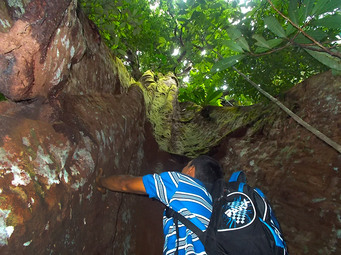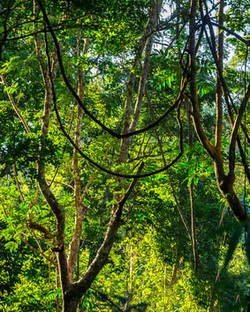
ec·o·tour·ism
/ˌekōˈto͝orizəm/
Noun: Tourism in exotic, often threatened, natural environments, esp. to support conservation efforts and observe wildlife.
While the definition of ecotourism helps, let’s dive a little deeper into what exactly ecotourism is and why it continues to increase in popularity.
According to Ecotourism.org, Ecotourism, including Eco Tours and Eco Holidays, is about uniting conservation, communities, and sustainable travel. This means that those who implement and participate in ecotourism activities should follow the following ecotourism principles:
• Minimize impact.
• Build environmental and cultural awareness and
respect.
• Provide positive experiences for both visitors and
hosts.
• Provide direct financial benefits for
conservation.
• Provide financial benefits and empowerment for local
people.
• Raise sensitivity to host countries' political, environmental,
and social climate.
Ecotourism is a classic win-win situation. Since most ecotourism takes place in undeveloped areas, the economic impact for the locals is very beneficial while the visitors themselves get a unique, possibly life changing, experience. These locations are typically difficult to get to and contain some of the most exotic ecosystems on the planet. Real estate development changes an ecosystem but, when exploring these remote areas, you’ll get a rare opportunity to see the world as nature intended. Seeing the world in this way will help inspire people to care for the environment and take steps to protect it.
The most important thing we can do for future generations is to make sure
we leave the planet better off than when we found it and ecotourism is a step in
the right direction.
/ˌekōˈto͝orizəm/
Noun: Tourism in exotic, often threatened, natural environments, esp. to support conservation efforts and observe wildlife.
While the definition of ecotourism helps, let’s dive a little deeper into what exactly ecotourism is and why it continues to increase in popularity.
According to Ecotourism.org, Ecotourism, including Eco Tours and Eco Holidays, is about uniting conservation, communities, and sustainable travel. This means that those who implement and participate in ecotourism activities should follow the following ecotourism principles:
• Minimize impact.
• Build environmental and cultural awareness and
respect.
• Provide positive experiences for both visitors and
hosts.
• Provide direct financial benefits for
conservation.
• Provide financial benefits and empowerment for local
people.
• Raise sensitivity to host countries' political, environmental,
and social climate.
Ecotourism is a classic win-win situation. Since most ecotourism takes place in undeveloped areas, the economic impact for the locals is very beneficial while the visitors themselves get a unique, possibly life changing, experience. These locations are typically difficult to get to and contain some of the most exotic ecosystems on the planet. Real estate development changes an ecosystem but, when exploring these remote areas, you’ll get a rare opportunity to see the world as nature intended. Seeing the world in this way will help inspire people to care for the environment and take steps to protect it.
The most important thing we can do for future generations is to make sure
we leave the planet better off than when we found it and ecotourism is a step in
the right direction.
 RSS Feed
RSS Feed

